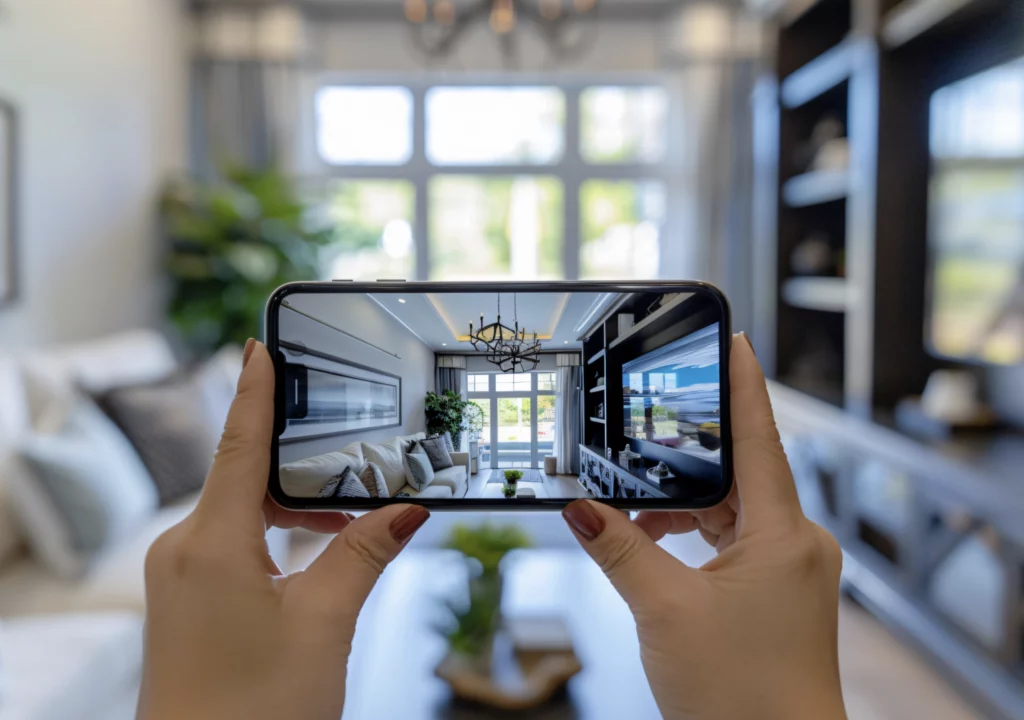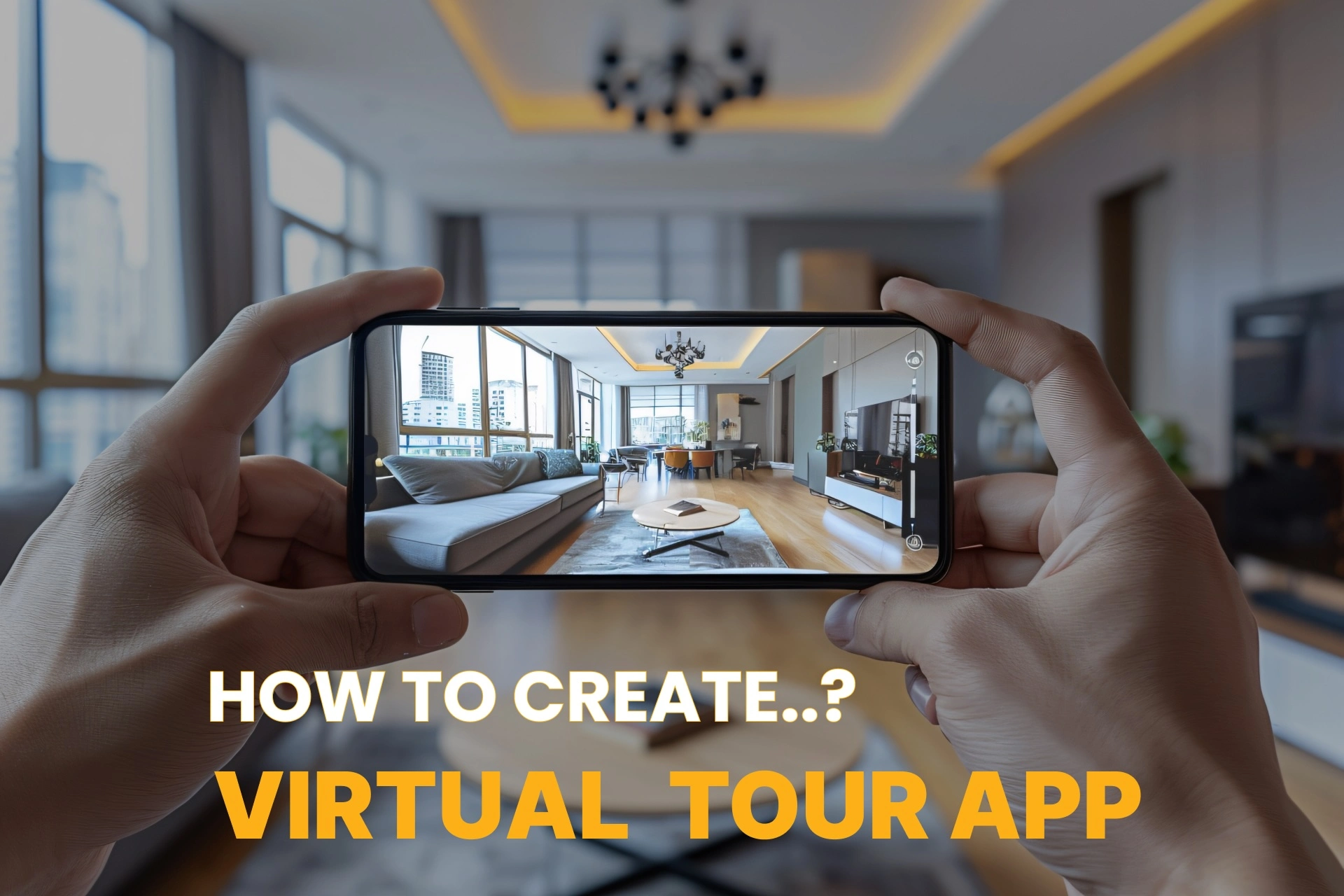Introduction
In today’s digital-first world, real estate agents need to offer more than just in-person property tours. With potential buyers looking for more convenience and immersive experiences, virtual tour apps have become essential tools in the real estate industry. These apps allow agents to showcase properties remotely, providing buyers with a 360-degree view of homes, apartments, and commercial spaces—all from the comfort of their own devices.
This guide explores how to create a powerful real estate mobile app, with a focus on building a virtual tour app tailored specifically for real estate agents. We’ll discuss the latest trends, must-have features, and tips for ensuring your app meets the needs of both agents and potential buyers. Plus, we’ll share insights from our work developing VRpartments, an advanced virtual tour solution that has transformed how properties are showcased.
Why Real Estate Agents Need a Virtual Tour App
The real estate market is increasingly competitive, and agents need innovative ways to stand out. Virtual tour apps offer a unique way to showcase properties, allowing potential buyers to explore homes at their own pace. Here’s why a virtual tour app is essential for today’s real estate agents:
- Remote Access: Buyers can view properties from anywhere in the world, making it easier for international or out-of-town clients to explore listings.
- Immersive Experience: Virtual tours provide a 360-degree view of the property, offering a more immersive experience than traditional photos or videos.
- Time-Saving for Agents: Instead of scheduling multiple in-person tours, agents can give clients the option to view properties online first, filtering out buyers who aren’t truly interested.
- Enhanced Marketing: A virtual tour app helps agents differentiate themselves by offering a modern, tech-forward solution that appeals to digital-savvy clients.
Key Trends in Real Estate App Development
Before diving into the development process, it’s important to understand the current trends shaping the real estate tech landscape. These trends will help guide your app’s features and functionality to ensure it remains competitive and relevant.
1. Virtual Reality (VR) and Augmented Reality (AR) Integration
Real estate apps are increasingly incorporating VR and AR technologies to offer more immersive property tours. VR allows buyers to explore properties in 3D, while AR can superimpose virtual furniture and decor onto real spaces, helping clients visualize their future homes.
Key Features to Include:
- 360-degree virtual property tours using VR
- AR-based furniture placement and room visualization
- Integration with popular VR devices like Oculus or Google Cardboard
2. Interactive Floor Plans
Interactive floor plans allow buyers to navigate through different rooms, zoom in on specific areas, and even view room dimensions and layouts. This feature is particularly helpful for buyers who want a detailed understanding of the property’s layout.
Key Features to Include:
- Clickable, interactive floor plans with zoom and room details
- 3D renderings of property layouts
- Integration with virtual tours for a seamless experience
3. AI-Driven Property Recommendations
Artificial intelligence (AI) can be used to offer personalized property recommendations based on buyer preferences. By analyzing user behavior and previous searches, the app can suggest properties that match the buyer’s needs, improving the likelihood of a sale.
Key Features to Include:
- AI-driven property suggestions based on user preferences
- Smart filters for location, price, amenities, and more
- Machine learning algorithms to refine recommendations over time
4. Live Chat and Video Tours
Incorporating live chat features and video call options allows agents to provide real-time support or walk buyers through a property during a virtual tour. This adds a personal touch and gives buyers the opportunity to ask questions as they explore a listing.
Key Features to Include:
- In-app live chat with real estate agents
- Video call options for live virtual tours
- Scheduling tools for live walkthroughs or consultations
5. Cloud-Based Data Storage
Cloud storage is essential for managing large property listings, high-resolution images, and 360-degree tour data. By storing data in the cloud, agents can access property information from anywhere, and buyers can enjoy smooth, uninterrupted virtual tours without lag or long load times.
Key Features to Include:
- Cloud-based property data and tour storage
- Fast, reliable streaming of virtual tours
- Backup and recovery options for agent and buyer data
Must-Have Features for a Virtual Tour Real Estate App

To ensure your virtual tour app delivers an exceptional experience for both agents and potential buyers, it’s essential to incorporate key features that address their needs. Below are some must-have features for your real estate app:
1. User-Friendly Interface
The app should have a clean, intuitive interface that’s easy to navigate for both tech-savvy users and those less familiar with digital platforms. Buyers should be able to explore properties, schedule tours, and contact agents without any confusion.
Key Features to Include:
- Simple navigation with clear menu options
- Easy-to-use search filters for property type, location, price, etc.
- Intuitive buttons for starting virtual tours, viewing floor plans, and contacting agents
2. High-Quality 360-Degree Virtual Tours
At the core of your app is the virtual tour feature, so ensuring high-quality, smooth, and immersive tours is critical. Buyers should be able to navigate through the property effortlessly, zoom in for details, and move between rooms with ease.
Key Features to Include:
- High-definition, 360-degree property views
- Smooth transitions between rooms and exterior areas
- Zoom functionality for detailed exploration
3. Property Management and Listings
Agents need an efficient way to manage and update property listings. Your app should offer a robust backend where agents can upload new listings, update information, and add virtual tours.
Key Features to Include:
- Easy property listing management for agents
- Integration with MLS (Multiple Listing Service)
- Automatic updates for new listings or price changes
4. Push Notifications and Alerts
Keep potential buyers engaged with automated push notifications and alerts about new listings, price drops, or open houses. This feature helps drive user retention and keeps buyers interested in the properties they’re following.
Key Features to Include:
- Push notifications for new property listings or updates
- Alerts for price changes or upcoming open houses
- Customizable notifications based on user preferences
5. Secure Login and Data Protection
Given the sensitive nature of property transactions and personal buyer data, your app must offer a secure, encrypted login system. Buyers and agents should feel confident that their information is protected.
Key Features to Include:
- Secure, encrypted login with two-factor authentication (2FA)
- Data encryption for property listings and personal information
- Compliance with data protection regulations (GDPR, etc.)

Our Experience: Building the VRpartments App
At Appricotsoft, we’ve had the pleasure of developing VRpartments, a cutting-edge virtual tour app that has revolutionized how real estate agents showcase properties. The app provides a fully immersive experience, allowing potential buyers to explore properties remotely in stunning detail.
By leveraging the latest in VR technology and offering features like interactive floor plans and AI-driven recommendations, VRpartments has set a new standard in virtual real estate tours. Our experience with VRpartments provides valuable insights into what it takes to create a successful real estate app tailored to both agents and buyers.
Check out our Case Study on VRpartments for more details on how we helped build this solution and how it transformed the real estate process for agents and buyers.
Pro Tips for Developing a Virtual Tour App
To ensure your virtual tour app stands out in the competitive real estate market, here are some expert tips to guide the development process:
1. Start with an MVP (Minimum Viable Product)
As with any app, it’s wise to start with an MVP that includes the core features—such as virtual tours, property listings, and scheduling tools. Gather feedback from early users to refine the app and add new features based on their needs.
2. Focus on User Experience (UX)
The real estate market serves a broad audience, from first-time homebuyers to seasoned investors. Your app should be intuitive and easy to navigate for all users, ensuring a seamless experience across all devices.
3. Prioritize Scalability
As your real estate app grows, so too will the number of listings, agents, and buyers using it. Ensure that your app’s infrastructure can handle increased traffic and data while maintaining fast performance.
4. Leverage Cloud Technology
Given the data-heavy nature of virtual tours and high-resolution images, leveraging cloud technology will ensure seamless access to property listings and tours, while minimizing app load times.
5. Test Thoroughly for Cross-Platform Compatibility
Your app should be available on both iOS and Android to reach the widest possible audience. Make sure to test across multiple devices to ensure a consistent user experience.
Conclusion
A well-designed virtual tour app can revolutionize how real estate agents showcase properties, offering buyers an immersive, convenient experience. By incorporating the latest trends like VR integration, AI-driven recommendations, and cloud-based storage, your app can stand out in the competitive real estate market.
Our experience with VRpartments shows how powerful a virtual tour app can be for real estate agents, streamlining the property viewing process while providing a more engaging experience for potential buyers. Ready to create your own virtual tour app? Partner with our team of experts to turn your vision into reality.
Check out our Case Studies for more examples of how we’ve helped businesses in the real estate sector and beyond!
